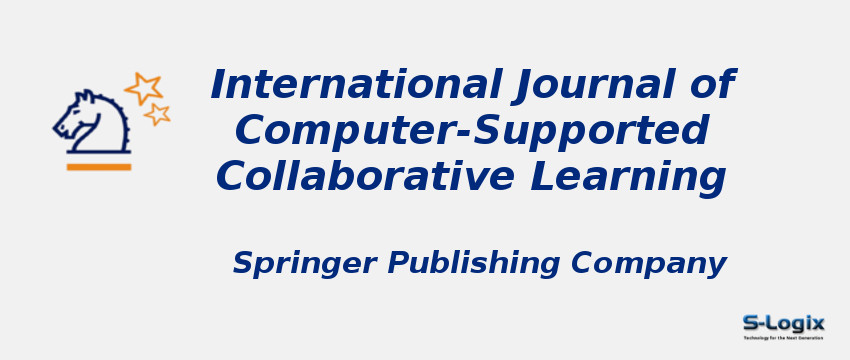Journal Home: Journal Homepage
Editor-in-Chief: Michael J. Baker
Print ISSN: 15561607
Electronic ISSN: 15561615
Abstracting and Indexing: Scopus, Science Citation Index Expanded
Imapct Factor 2024: 5.7
Subject Area and Category: Computer Science,Human-Computer Interaction,Social Sciences,Education
Publication Frequency:
H Index: 73
Q1: Education
Q2:
Q3:
Q4:
Cite Score: 9.2
SNIP: 2.383
Journal Rank(SJR): 1.967
Latest Articles: Latest Articles in International Journal of Computer-Supported Collaborative Learning
Guidelines for Authors: International Journal of Computer-Supported Collaborative Learning Author Guidelines
Paper Submissions: Paper Submissions in International Journal of Computer-Supported Collaborative Learning
Publisher: Springer Publishing Company
Country: United States
